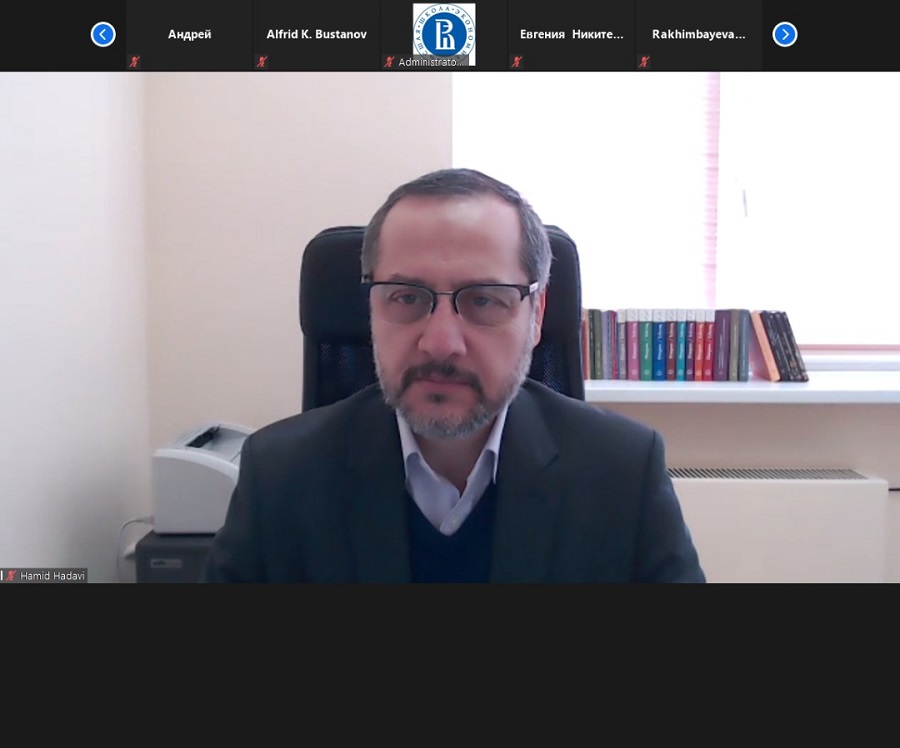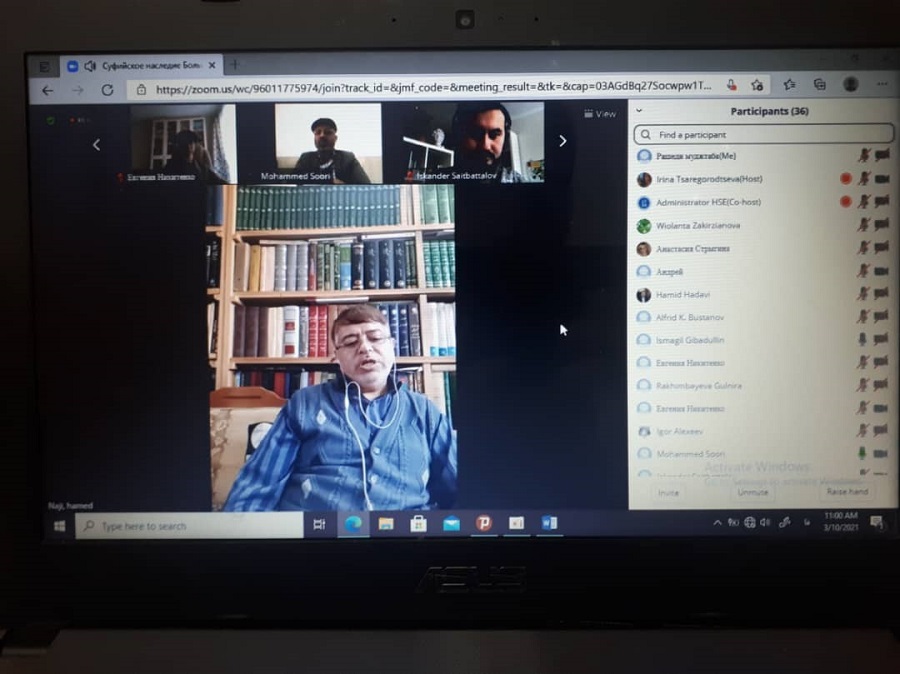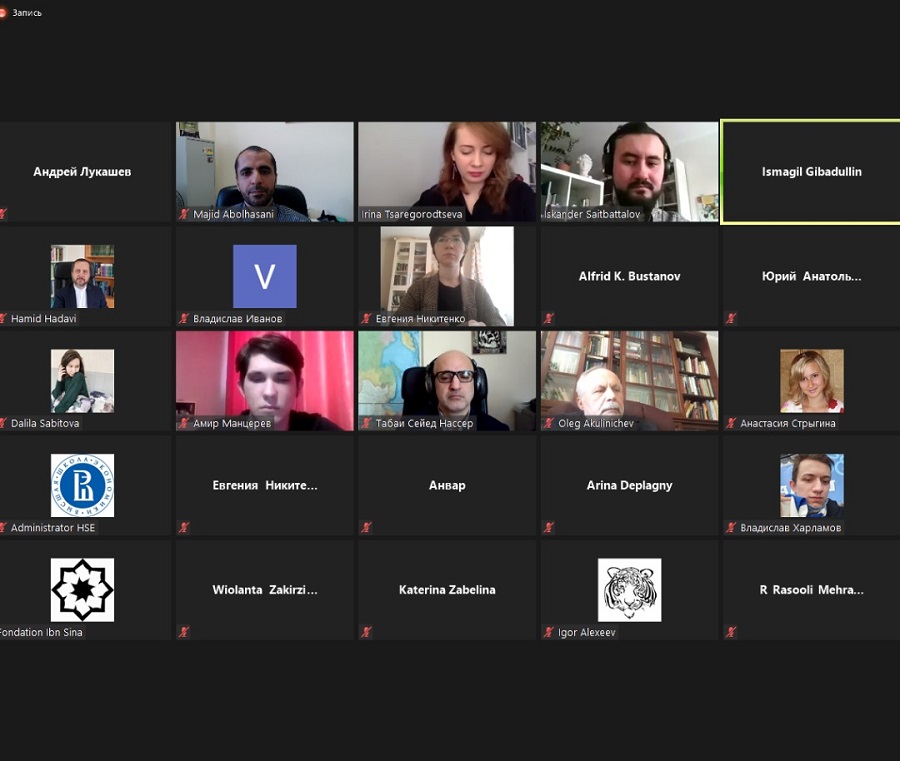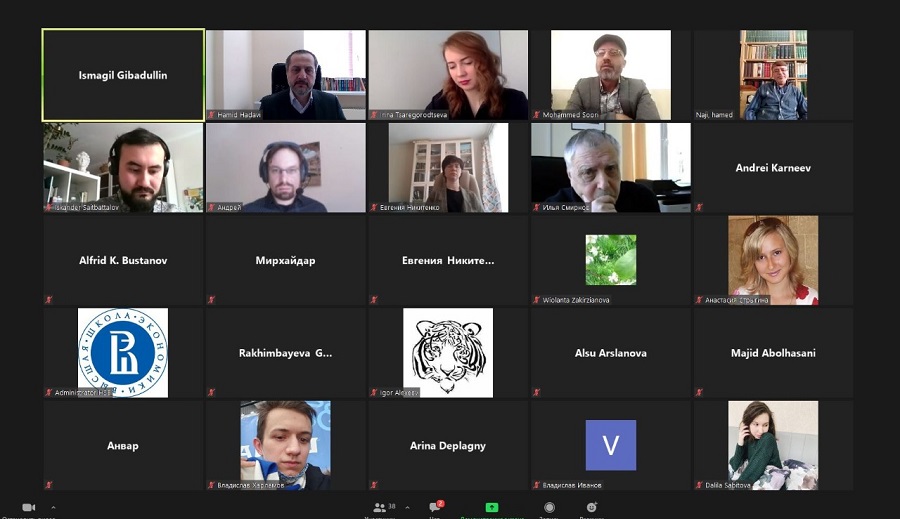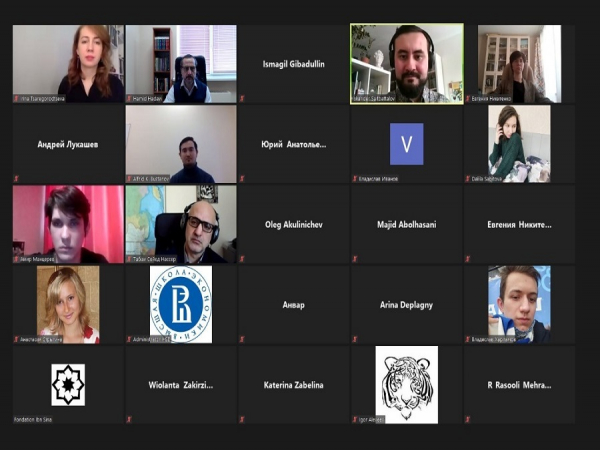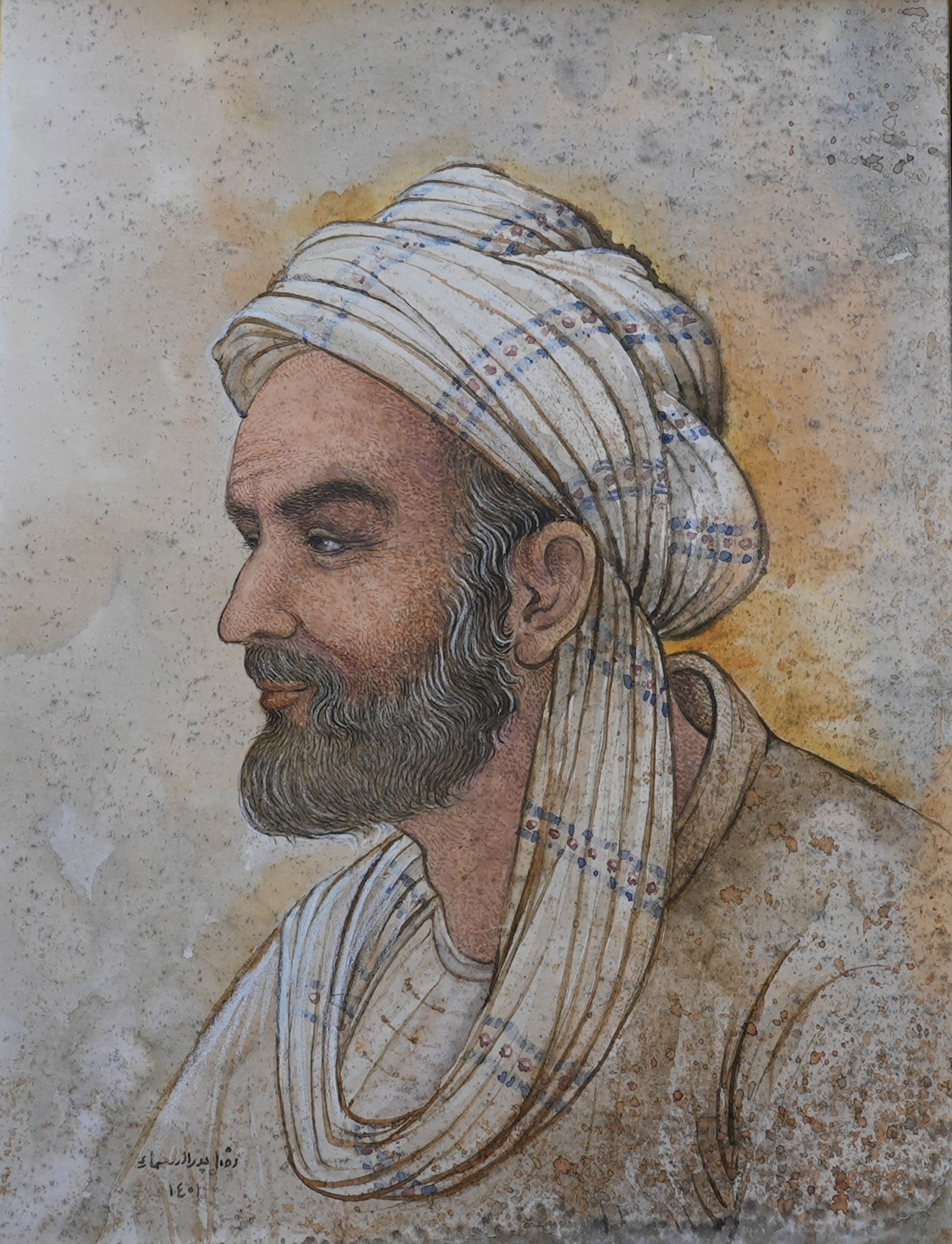A roundtable discussion on the Sufi heritage of Greater Iran in the culture of Muslims of the Volga region, Urals and Siberia was held on March 10, 2021. More than 30 participants joined the online Zoom conference.
The event was opened by the organizing parties’ representatives: A. Karneev (head of the School of Oriental Studies, Faculty of World Economy and World Politics, Higher School of Economics); I. Smirnov (director of the Institute of Classical and Oriental Studies, Faculty of Humanities, Higher School of Economics); and Hamid Hadavimogaddam (president of the Ibn Sina Foundation). The round table was moderated by A. Lukashev, candidate of philosophical sciences, research director of the Ibn Sina Foundation. The presentations were interpreted by I. Gibadullin (senior researcher associate of the Marjani Institute of History of the Academy of Sciences of the Republic of Tatarstan) and E. Nikitenko (candidate of historical sciences, associate professor at the Institute of Classical and Oriental Studies of the Higher School of Economics).
Despite the unusual format of the roundtable, it was held at a high academic level. Academicians from Russia, the Netherlands and Iran delivered seven interesting presentations on the characteristics and aspects of the influence of the Iranian Sufi tradition on the culture of the Muslim peoples of Siberia, the Urals and the Volga region. The presentations were followed by discussions.
The speakers included:
1) Naji Hamed (Isfahan University, Iran): “The Fundamentals of Naqshbandi teachings and techniques for controlling the soul”.
2) Suri Mohammad (Institute of Islamic Sciences and Culture, Iran): “The written legacy of the Naqshbandi Tariqat and the role of the Persian language in its formation and development”.
3) Ismagil Gibadullin (Marjani Institute of History, Academy of Sciences of the Republic of Tatarstan): “Heterodox Sufism in the Golden Horde: Persian “Qalandar-nameh” by Abu Bakr Qalandar Rumi”.
4) Yuri Averyanov (Institute of Oriental Studies, Russian Academy of Sciences): “Arrival of Wandering Qalandar Dervishes and Their Influence on the Culture of the Post-Horde Volga Region”.
5) Alfrid Bustanov (University of Amsterdam, Netherlands), Evgenia Nikitenko (National Research University Higher School of Economics): “The Manuscript “Evidence for those who remember” by Dawlatshah al-Ispijabi”.
6) Iskander Saitbattalov (Bashkir State University): “The chain of spiritual succession of Muhammad-Ali Chukuri in the context of religious ties between Muslims of Russia and Greater Iran”.
7) Irina Tsaregorodtseva (National Research University of the Higher School of Economics), Amir Mantserev (National Research University of the Higher School of Economics): “Cultural Traces of Greater Iran in Manuscripts of the Collection of the Kiikov Family”.
The report of A. Bustanov and E. Nikitenko was devoted to the work “Burkhan az-zakirin (“Evidence for those who remember “) (2020) by Dawlatshah al-Ispijabi, which has been recently published with the support of the Ibn Sina Foundation. I. Saitbattalov, researcher from the Bashkir State University, presented the results of the work on the book “Bulgarian Chronicles” by Muhammad-Ali Chukuri, which win the Ibn Sina grant in 2018 and is being prepared for publication in 2021.
The videoconference was recorded and will soon be available on the Ibn Sina Foundation’s YouTube channel.
A special issue of the “Islamology” journal, which is included in the RSCI and the HSE “white list”, will be published based on the results of the round table discussion.
